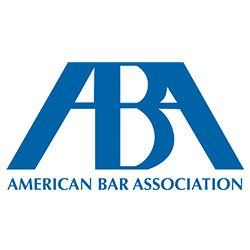Real Estate, Property Disputes, & Landlord-Tenant Disputes in Billings, MT
In the expansive state of Montana, a wide array of real estate and property disputes arise. These range from high-value transactions involving some of the largest privately-owned land parcels in the nation to issues between landlords and tenants. Not every real estate deal unfolds as intended, often necessitating the involvement of a skilled Real Estate Attorney.
Property Lines and Boundaries
Land is possibly one of the most valuable assets a Billings, MT resident can have. Whether you have less than an acre or thousands of acres, any transaction has the potential to become complicated. One of the most common points for contention is property lines. When the boundary lines are vague, there are concerns regarding the rightful owner; finding the proper documentation and determining the next steps can be complicated. A property lawyer can help you understand the details so you can make the best decision possible.
Property lines that define the boundary of different parcels of land are typically found on a county’s tax map. Although natural landmarks such as a pond or tree line can mark where the property ends, it’s often not that clear cut. Sometimes the boundary goes through the center of a field, or if the landscape changes, such as the pond drying up and becoming overgrown, determining the edge of a parcel can be challenging.
Documentation Requirements
When a legal dispute arises, gathering the appropriate documents necessary for making a determination can help resolve the matter as quickly as possible. They can include:
- Property deed
- Title
- Insurance files
- Surveys of the property
- Topographical maps
- Property line map
- Geographical Information System maps
If property ownership of adjacent parcels has remained unchanged for years, or even decades, the exact boundaries may be forgotten or remembered incorrectly. Reviewing the legal documents can help avoid issues later.
In Billings, MT subdivisions, property line markers often denote the property line. Deed restrictions can affect how close to your property’s boundary you can build a fence. Conflicts regarding property lines can become heated quickly. Disputes may become lawsuits if a neighbor:
- Builds or installs an improvement that crosses the boundary
- Interferes with established property use
- Doesn’t get building permits before starting the work
- Makes an improvement that violates state or local ordinances
- Fails to obtain approval as required, such as a homeowner’s association or city planning commission
- Constructs an improvement that violates a deed restriction
Montana has several laws that pertain to property line and fence disputes. A significant amount of land is classified as open range. This means that it is the residential property owner’s responsibility to fence livestock out.
Litigation Options
If the situation deteriorates and you must file a lawsuit, there are generally two types. A property owner brings ejectment actions to remove someone who claims title to the property but occupying it unlawfully. This differs from an eviction, which is an action against a non-paying or unsatisfactory tenant.
A declaratory judgment places your case in front of a judge. After viewing the documentation, the court states the rights and responsibilities of all parties involved according to the laws that pertain to the situation. It does not award monetary damages but can prevent further controversies about the property.
Contacting a Billings, MT property dispute attorney at RMK Law can help you keep the situation calm and potentially resolve the issue without litigation.
Zoning and commercial leasing disputes may render a business unable to open or to operate profitably; residential rental and foreclosure issues can individuals’ living conditions; and problems with ownership, covenants, and easements can have huge financial ramifications, just to name a few.
Whatever your role in a real estate transaction that encounters obstacles, Ritchie Manning Kautz can help ensure you get what you bargained for.
Easements
If a property is inaccessible except through another person’s land, an easement may be necessary. This is the legal right to use property owned by someone else for a specific purpose. There are several types of easements:
- Right of way – A property owner accesses their land via a driveway from the main road.
- Homeowner’s associations/condos – The association owns public areas within the property boundary, and residents have pass-through rights.
- Utility maintenance – Common in newly developed areas, the easement grants utility companies access to run cable and power lines on a property.
The easement holder must typically adhere to specific stipulations regarding the dimensions, scope of interest, and location. In some cases, prior use or necessity may create an easement. The property owner has the right to use the land as long as it doesn’t unduly interfere with the easement’s use.
If you are buying property adjacent to a neighboring parcel, the deed should contain any existing easement information. If an easement is ‘appurtenant,’ it is attached to the land and is transferred to new owners. If it is ‘in gross,’ the easement only applies to the current owner and does not transfer when the property is sold.
Entitlements
Land entitlement is the process necessary to gain approval for a real estate development. Zoning laws are those that regulate the use and development of the land. They are often complex and time-consuming. Depending on the project, you may require several different types of entitlements, such as:
- Rezoning
- Zoning variances
- Utility approvals
- Use permits
- Landscaping
- Road approvals
Development projects cannot move forward until you receive permission from the surrounding community and numerous regulatory agencies. Talking with an experienced property lawyer before you begin can help ensure you’re fully prepared for each step the process entails.
Landlord Disputes
Understanding your rights in a rental agreement is critical, whether you are the tenant or landlord. The law prohibits landlord actions such as:
- Lockouts
- Retaliation
- Utility shutoffs
However, they may terminate a rental agreement with only three days’ notice in some instances. A property attorney can help with Billings, MT real estate disputes, from the security deposit and responsibilities to repairs and tenant options.
Some of Our Real Estate & Property Dispute Experience:
- A two-week jury trial involving a large property development company in a dispute over the sale of lots at the Club at Spanish Peaks in Big Sky, Montana.
- A federal appeal involving the subdivision, development, and sale of ranch property for residential development near Roundup, Montana.
- A class action by tenants against owners and property managers of multiple large apartment complexes in Missoula and Billings, Montana involving alleged violations of Montana’s Landlord-Tenant Lease Act.
- Numerous other cases involving landlord-tenant disputes.
- A case involving claims against a real estate company on Montana’s Hi-Line regarding the sale of property on an Indian Reservation.
- Wrongful foreclosure cases.
- Representing individual homeowners in a long-running dispute against a Homeowners’ Association in Carbon County, Montana.
Contact the Offices of Ritchie Manning Kautz PLLP
Call (406) 601-1400 to schedule a consultation at your convenience or contact us online and we will reach out to help you with your case.









